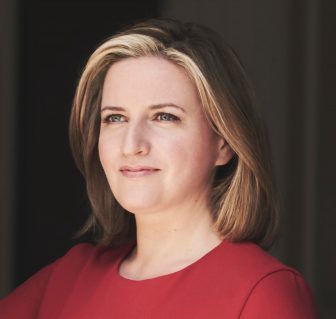 The property market has soared in the past 12 months despite the adverse impact the global pandemic has had on the UK economy, as people sought more living space and locked into cheap mortgage borrowing costs.
The property market has soared in the past 12 months despite the adverse impact the global pandemic has had on the UK economy, as people sought more living space and locked into cheap mortgage borrowing costs.
One of the major factors driving up prices over the past year was the stamp duty holiday, introduced in July 2020, which finally ended on 31 September after being phased out over the summer period.
The scrapping of stamp duty on properties worth less than £500,000 prompted record numbers of transactions, as buyers were able to save up to £15,000. Yet despite the ending of the tax break the housing market has remained relatively strong.
House prices grew by 7.1% in November, Zoopla said, meaning the average house has now gained around £16,000 in value over the last 12 months. In most regions of the UK prices have grown by more than 2019 and 2020 combined.
The average price of a home currently stands at £240,900, according to the property portal, owed in part to the widening supply-demand imbalance in the market. But will the trends driving the residential property market continue into 2022?
Grainne Gilmore (GG) and Richard Donnell (RD), from Zoopla’s Research & Insights team, discuss the outlook for the UK housing market next year.

GG: Richard, our latest house price report reflected what has happened in the market over the past 12 months. Prices are up 7.1% on the year, and 6.6 million homes have risen in value by more than £30,000. This is not what many would have predicted at the start of the pandemic back in March last year.
RD: Yes, the market in 2021 has been remarkably busy for agents, considering we are in a global pandemic. But, the pandemic itself has been one of the drivers of buyer demand, with many households taking lockdowns as an opportunity to reflect on where they were living, and the space in which they were living. Add to this the stamp duty holiday, and we have seen transactions rise to 1.5 million – translating into around one in 16 privately-held homes changing hands in 2021.
They believe the the pandemic-inspired ‘search for space’ has further to run in 2022.
GG: The rise of Omicron is causing more uncertainty for the households, and the wider economy, in the coming weeks. Our data shows a slowing in buyer demand, but it is very much in line with the usual seasonal trends. We expect a bounceback in demand in the days following Christmas and into the New Year. However, could Omicron have any impact on supply?
RD: The housing market is usually busiest in the first couple of months of the year with a spike in new listings as well as a surge in buyer interest. Starting last year with restrictions and schools closed put off many sellers. So long as schools remain open and we don’t see widespread restrictions then we would expect a strong flow of new instructions.
But looking through the current trends to the rest of 2022, what other factors will be at play?

GG: There will be more economic headwinds next year, but the ‘pandemic-led’ search for space has further to run. Office-based workers will still be recalibrating their working practices and their home life, and some may choose to make a move because they no longer have to live so close to their workplace. This will continue to put upwards pressure on houses situated in wider commuter zones and more rural and coastal areas. There is more room for prices to grow in the more affordable areas, and we forecast average price rises of 4% next year, and 1.2 million transactions, roughly the same level as between 2014 and 2018. How long do you think the pandemic will continue to impact the housing market?
RD: When we look back at the pandemic in five to ten years we will recognise it marked a major turning point in the link between home and work and people’s attitudes to their home. The pandemic has engendered some seismic changes in how people want to work, and how they will work in the future. This trend has further to run, as more office-based workers decide how far they can live from the office if they do not have to be there every day into 2022 and 2023. Together with other structural factors such as an ageing population, the result should be a greater proportion of homes trading each year, bucking the decline over the last five to ten years and supporting the size of the market for agents and lenders.
Market conditions ‘extremely competitive’; value of UK property hits £9.5trn


Is this right? I bought my current home 32 years ago, I know the value then but I do not know what it’s value is now and it is very likely I will never know. I was offered £150,000 more than I’d happily accept last year if I’d move out and complete a chain but that was a desperate ‘might’ to enable one of 8 competing couples find somewhere in the village to move in to.
The extra £150,000 wasn’t of interest – I’d have put myself in the same scramble to find somewhere to buy and would then be competing with the other 7 couples who couldn’t find somewhere to live.
The thing about predicting home moves rather than property sales is that not a single analyst can hope to understand 1 million plus motivations for a move. Homes are not a tradable commodity and that means it is not possible to predict nationally what is going to happen in 3500 individual activity centres covering 29 million homes of which about 4% might or might not come to the market or not.
I don’t think agency works in the way a lot of group-thinkers think it works
You must be logged in to like or dislike this comments.
Click to login
Don't have an account? Click here to register
There are so many factors at play in this market that don’t seem to get mentioned. The fact that we had the ‘Brexit’ market for 4 years meant there was a lot of pent up demand and supply that was accelerated by the SDLT holiday doesn’t even get a mention. How much of the increase in business was a hangover and how much was movers bringing their move forward. How many people will get divorced this year? How many new babies will mean people need more space? How many promotions will allow people to take the next step on the ladder. How will travel and Brexit affect retirees being able or not able to buy abroad or just holiday more or less by releasing equity, or moving back to the UK. I know that ‘market analysis’ is essentially a best guess but having been doing this for 40 years these predictions are so varied by large companies that I’m not sure what purpose they serve. Price predictions for next year seem to vary (by large, well-respected organisations) from -3% to +5% nationwide. What do I think? Who cares! Happy Christmas and looking forward to an unpredictable and exciting New Year!!
You must be logged in to like or dislike this comments.
Click to login
Don't have an account? Click here to register
There seems to be a ‘Q&A’ missed off this jolly little entertainment feature – allow me to correct that…
GG: Reader question, Richard – To what extent does what is claimed as gross misuse of our website – by certain Agents trying to ‘game’ the system by #RElisting properties by their hundreds in some instances; or others completely fabricating entire registers of properties to list – skew our research and thus weaken or potentially completely nullify its’ validity?
RD: Erm… well… ahhh… Oh, gosh – is that the time? I really have to be somewhere else. Sorry and all that. Erm… I’ll ask Lawrence Hall what the stock answer to that one was and get back to you.
You must be logged in to like or dislike this comments.
Click to login
Don't have an account? Click here to register